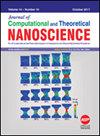Proposal of Classified Music Recommendation Model Based on Social Media
Q3 Chemistry
Journal of Computational and Theoretical Nanoscience
Pub Date : 2021-05-01
DOI:10.1166/jctn.2021.9576
引用次数: 0
Abstract
With the spread of smartphones, it has become common to always listen to music like background music, so it is necessary to create a music database that meets individual needs. By creating a music database using data from social media, music is classified in a different way from collaborative filtering, which is mainly used by existing music source providing platforms. Various other hashtags attached to posts with music titles used as hashtags are collected using web crawling, and music is classified based on the collected hashtags to reflect actual listeners’ opinions on music. It uses crawling to find posts on social media with music titles tagged as hashtags, then collects other hashtags attached to those posts. Hashtags collected by performing the same task with multiple music titles are collected, analyzed, and statistics are then classified to determine when and where the music fits. On social media, the feelings of the person who posted the post and the conditions such as the time zone, place, weather, and situation where the post was posted are reflected as hashtags. By analyzing the hashtags attached to the music title, it is possible to build a social media-based music database in which the opinions of various people are reflected as collective intelligence. It is possible to derive different results from existing collaborative filtering based on the past listening records of users of the platform used by most of the sound source providing platforms. Even if music titles are not written in complete form on social media hashtags, we plan to research them so that they can be used to build a database.基于社交媒体的音乐分类推荐模型的提出
随着智能手机的普及,经常听背景音乐等音乐已经成为一种普遍现象,因此有必要创建满足个人需求的音乐数据库。通过使用来自社交媒体的数据创建音乐数据库,以不同于现有音乐源提供平台主要使用的协同过滤的方式对音乐进行分类。以音乐标题为标签的贴文附带的各种标签通过网络爬虫收集,并根据收集到的标签对音乐进行分类,以反映实际听众对音乐的看法。它使用爬行技术在社交媒体上找到带有标签音乐标题的帖子,然后收集附加在这些帖子上的其他标签。通过对多个音乐标题执行相同的任务收集的标签被收集、分析和统计数据,然后分类以确定音乐适合的时间和地点。在社交媒体(sns)上,上传者的心情和上传时的时区、地点、天气、情况等都以标签的形式反映出来。通过分析与音乐标题相关的标签,可以建立反映各种人的意见的集体智慧的社交媒体音乐数据库。根据大多数声源提供平台使用的平台用户过去的收听记录,可以从现有的协同过滤中得出不同的结果。即使音乐标题没有以完整的形式写在社交媒体标签上,我们也计划对它们进行研究,以便用它们来建立一个数据库。
本文章由计算机程序翻译,如有差异,请以英文原文为准。
求助全文
约1分钟内获得全文
求助全文
来源期刊

Journal of Computational and Theoretical Nanoscience
工程技术-材料科学:综合
自引率
0.00%
发文量
0
审稿时长
3.9 months
期刊介绍:
Information not localized
 求助内容:
求助内容: 应助结果提醒方式:
应助结果提醒方式:


